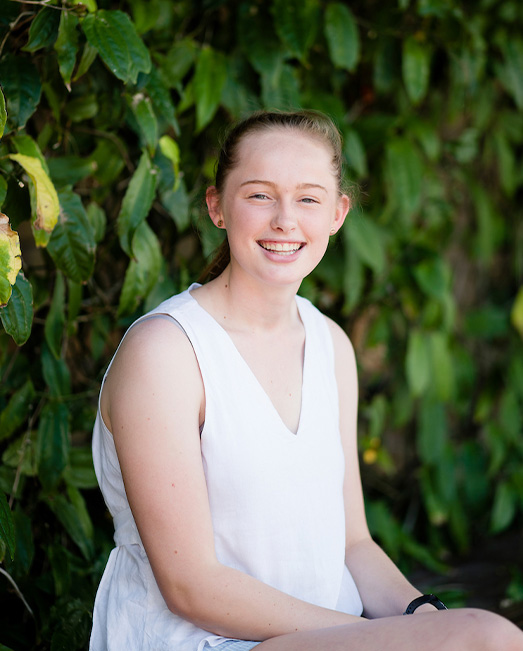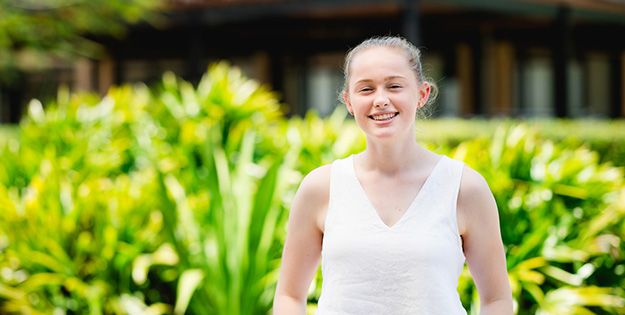Future student
Copyright@ Australian Catholic University 1998-2026 | ABN 15 050 192 660 CRICOS registered provider: 00004G | PRV12008
Copyright@ Australian Catholic University 1998-2026 | ABN 15 050 192 660 CRICOS registered provider: 00004G | PRV12008

Do you want help people live life to the fullest? Chasing a career that really makes a difference? If yes, then studying health could be for you. But what does the day-to-day of being a health student really involve?
We asked Brisbane-based ACU Bachelor of Physiotherapy student Georgia Craven to put a typical weekday down on paper.
5 – 8am
“I’m awake nice and early, I head to my local gym for a 6am class, get home, shower, quickly eat some breakfast and then hop in the car for my drive to uni.”
8 – 10am
“My first class of the day – a two hour lecture. I turn up to the big lecture hall with two projector screens on the wall and have my notes on my laptop, ready to go. This class is about physiotherapy in integrated populations and we are learning about women’s health at the moment.
As we are part of ACU's National School of Physiotherapy we are fortunate enough to have one of the best women’s health physios in Australia via video conference from our North Sydney Campus.”
10 – 11am
“I grab a quick coffee and a snack with my friends before rushing off to a tutorial, this time for neurological science. These tutorials are really helpful to consolidate what we have learnt from the lectures.
We draw on our previous learnings, whilst bringing together what we learnt at the lecture and apply them to case studies. As ACU likes to integrate theory and practical teaching, depending on the class focus, it’s not uncommon for these classes to have a practical component.”
11am – 1pm
“Quick bite of lunch from The Hive, our on-campus café. I look at the salads, but generally can’t go past a focaccia or some hot chips (my number one weakness). Then it’s off to a group meeting to discuss our assignment due next week. It’s not uncommon for us to have group assignments, as physio is a multidisciplinary profession, and working alongside others is incredibly important.”
1 – 3pm
“Time for our practical and the last class of the day. This is once again for women’s health and everything we learn in the lecture is relevant for this class. Practicals are a pivotal aspect for physiotherapy, as the teachers show us hands-on skills to assess, diagnose and treat various conditions. ACU is smaller than most universities, so classes are capped to 26 students, and generally classes have three teachers to provide their assistance.”

3 – 5pm
“Often I don’t leave uni straight after class, I’ll either spend the time chatting to friends, going over content or asking the teacher questions about things I didn’t understand. I’ll drive home and then give myself some time to relax, do some general life admin and then it’s time to study.”
5 – 7pm
“This course can be overwhelming at times, having to pull information from our “physiotherapy belt” all day. So it is super important not to get snowed under which is why I make sure to review the content from the day. This means I understand the content better and can write a list of questions to ask teachers in the next class.”
7 – 10pm
“Usually I’ll have some dinner with my family as I live at home or I’ll catch up with some friends from back in school – depends on the week. I’ll then spend an hour or so before bed getting ready for the classes the next day. Depending on what I have, it usually involves some readings or case studies. Then it’s time for bed. I don’t run well off little sleep – I find it hinders what I do the next day (plus did I mention I have a shift at work starting at 5am tomorrow morning?)
Really the thing that most surprised me about uni is the interaction we have with our teachers. I have siblings who went to other universities and honestly it sounded terrifying. I’m someone who needs help from their teachers and their experiences were far from what I needed.
But when I got to ACU, one of the first things we were told was that a professional relationship between teacher and student can be the difference between a student involving themselves in the education, and someone dropping behind and failing. I had a teacher for one year (technically 24 weeks), but even two years down the track, we still chat. And this is the same with every teacher I have had. They are passionate about what they teach and really care about the impact they have on our professional development.”
Interested in a study experience like Georgia’s? Explore your options at ACU.
Copyright@ Australian Catholic University 1998-2026 | ABN 15 050 192 660 CRICOS registered provider: 00004G | PRV12008